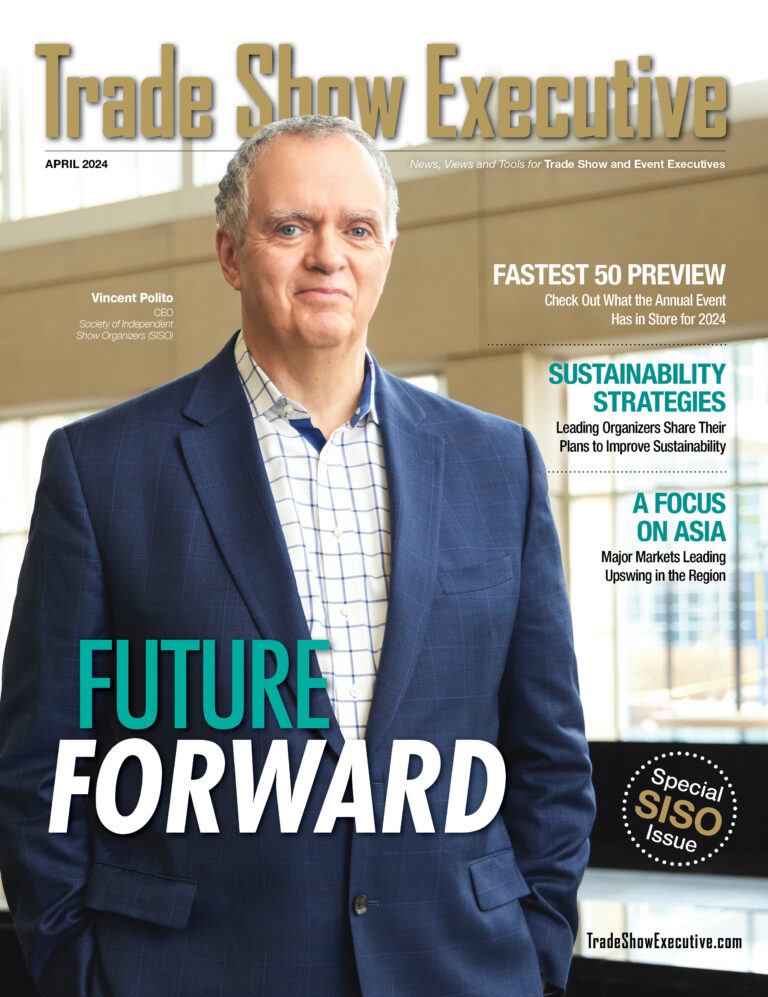Dallas, TX – Getting Chinese exhibitors and attendees to trade shows in the United States is no simple task; however, knowing the right person to call at U.S. Consulates in China can be invaluable for event organizers.
The International Association of Exhibitions and Events (IAEE) has made available a comprehensive list of names and contact information for the consular officers who handle trade show visas at the U.S. Embassy in Beijing and the consulates in five other major Chinese cities: Hong Kong, Shanghai, Shanyang, Chengdu and Guangzhou. The individuals were recently added to the consulate staffs to assist with trade show visas. “These individuals can be very helpful in expediting visa requests from Chinese nationals who wish to visit U.S. events,” the IAEE said.
The list is available on the IAEE website.
Consular Officers Wield All the Clout
Show organizers and the IAEE have been concerned for some time about the red-tape required to bring Chinese nationals to their events in the United States. While China is a significant business partner of the U.S., it is also closely scrutinized for immigration and national security reasons.
A separate IAEE publication on tips that show organizers can use for getting visas for Chinese visitors concludes that going the extra yard is required in order to satisfy U.S. Consulate officials, and that organizers—not the attendees or exhibitors—will simply have to plan on jumping through some hoops. “Ultimate authority is invested in each consular official and there is no opportunity to override that individual’s decision,” the IAEE wrote. “An applicant’s only recourse if denied a visa is to reapply.”
The key to the process is the invitation letter, which is a common industry tool that nevertheless requires meticulous attention to detail when it involves China. The IAEE said invitation letters are frequently counterfeited in China and sold to illegal immigrants as a means of getting into the U.S. As a result, consular officials give these letters a high degree of scrutiny and will likely reject a legitimate applicant if their paperwork is deemed suspicious.
The Letter is the Law
Invitation letters are not legally required for a visa, but a properly constructed letter can go a long way toward getting an applicant approved.
The IAEE recommends shows to avoid using a generalized invitation letter that can be downloaded from the show’s website. Such documents can fall into the wrong hands and be manipulated. Instead, each letter should be personalized for each applicant and contain their passport number, visa number, date of birth and, if possible, a list of prior trade shows that person has attended whether overseas or within China.
Letters should also have a watermark, registration code or some other anti-counterfeiting feature that will bolster its authenticity.
Make it Easy for Them
A good rule of thumb is that the visa process needs to be simple for the consular officers. A prudent step is to send a sample copy of the invitation letter and watermark sticker directly to the consulate so that the staff will be familiar with it when the applications start pouring in.
The organizer should also send in a detailed description of the event itself, including a description of the audience demographics, a list of exhibiting companies and a listing of foreign nationals expected to attend.
It should be understood that the nature of the show could create its own delays, particularly for events in potentially sensitive technologies such as electronics and wireless communications.
Include a list of third-party brokers who sell exhibit space in pavilions. Such transactions might not provide the exhibitor with receipts or other direct proof that they are connected to a specific trade show.
Lists of registrants by last name are also helpful, but resist the temptation to ship the consulate a full attendee list in an Excel spreadsheet. It contains too much information and the names of people other than those who will be applying through the specific consulate. “The less clutter you provide to U.S. Consular officials, the more effective the process becomes,” the IAEE said. “Data should be prepared for the ease of use of the consular officials, not the ease of preparation by the organizer’s staff.”
Reach Steven Hacker at (972) 458-8002 or shacker@iaee.com











